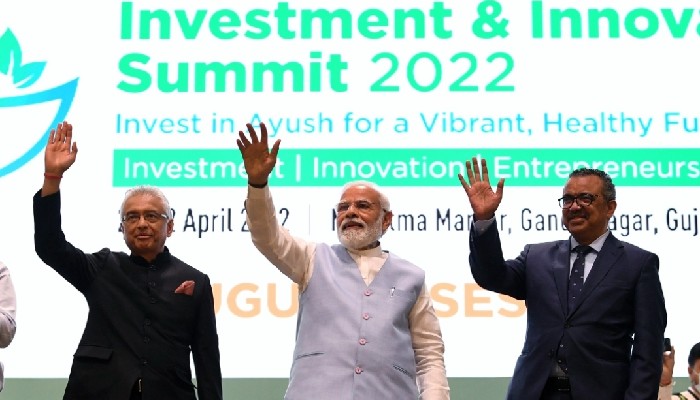The new policy is a much-required leap from the old education system of the country and will focus on overall development
Prime Minister Narendra Modi has said the National Education Policy (NEP) is going to give a new direction to 21st century India reiterating that it is the time to change the education system of the country after three decades.
Addressing the conclave on “School Education in 21st Century” under the NEP 2020 today through video conference, Prime Minister Modi said that NEP will replace the mark sheet driven education system with a holistic report card which will be a detailed sheet of unique potential, aptitude, attitude, talent, skills, efficiency, competency, and possibilities of the students.
He added that a new National Assessment Center “Parakh” will also be established for the overall improvement of the evaluation system.
The Prime Minister listed out the 21st-century skills- Critical Thinking, Creativity, Collaboration, Curiosity, and Communication that the new policy will focus on.
He said that students should learn coding from the beginning, understand Artificial Intelligence, and join the Internet of Things, Cloud Computing, Data Science, and Robotics.
“Our earlier education policy was restrictive. But in the real world, all subjects are related to each other. But the present system does not provide an opportunity to change the field, to connect with new possibilities. This has also been a major reason for the dropout of many children. Therefore, the National Education Policy students are given the freedom to choose any subject,” PM Modi noted.
“The new National Education Policy is a means to fulfilling new aspirations, new opportunities of a new India,” he added.
The Prime Minister took to Twitter to share the video of the event.
Speaking on 'School Education in 21st Century.’ https://t.co/N0IXnJpkud
— Narendra Modi (@narendramodi) September 11, 2020
Modi said that NEP-2020 emphasizes on providing the right environment to the children for their education as it plays a major role in developing the personality of the individuals. He stressed the importance of replacing the old 10 Plus 2 with the system of 5 Plus 3 Plus 3 Plus 4 and said that with the change, playful education will reach villages as well.
He further noted that NEP ensures that every child who crosses the third grade can easily read 30 to 35 words in a minute. He added that this will help him in understanding the content of other subjects with ease.
The Prime Minister emphasized the importance of learning through study tours to historical places, farms, and industries. He said that it will help students get practical knowledge, and increase their curiosity and knowledge.
PM Modi, in his address, pointed out that NEP has been formulated in such a way that the syllabus can be reduced and focused on fundamental things.
“A National Curriculum Framework will be developed to make learning integrated and interdisciplinary, fun-based, and complete experience. Suggestions will be taken for this and recommendations and modern education systems of all will be included in it. The world of the future is going to be quite different from our world today,” he added.
Talking about imparting early education in the mother tongue, a reform in NEP, he said, “One needs to understand that language is the medium of education, language is not all of education. Some people forget this difference. Therefore, whatever language a child can learn easily, the same language should be the language of learning. He said that keeping this in mind, it is proposed that early education should be in the mother tongue like in most other countries. Otherwise, when children hear something in another language, they first translate it in their language, then understand it. This creates great confusion in the child's mind, it is very stressful.”
Referring to the doubts on the issue, the Prime Minister said that there is no restriction on learning any language apart from the mother tongue. He said along with English other foreign languages can also be learned by the children.
He expressed happiness that principals and teachers are enthusiastically participating in this discussion to implement NEP. He said that over 1.5 million suggestions have been received within a week from teachers across the country on implementing the policy.
 Contact Us
Contact Us  Subscribe Us
Subscribe Us










 Contact Us
Contact Us
 Subscribe
Subscribe
 News Letter
News Letter

